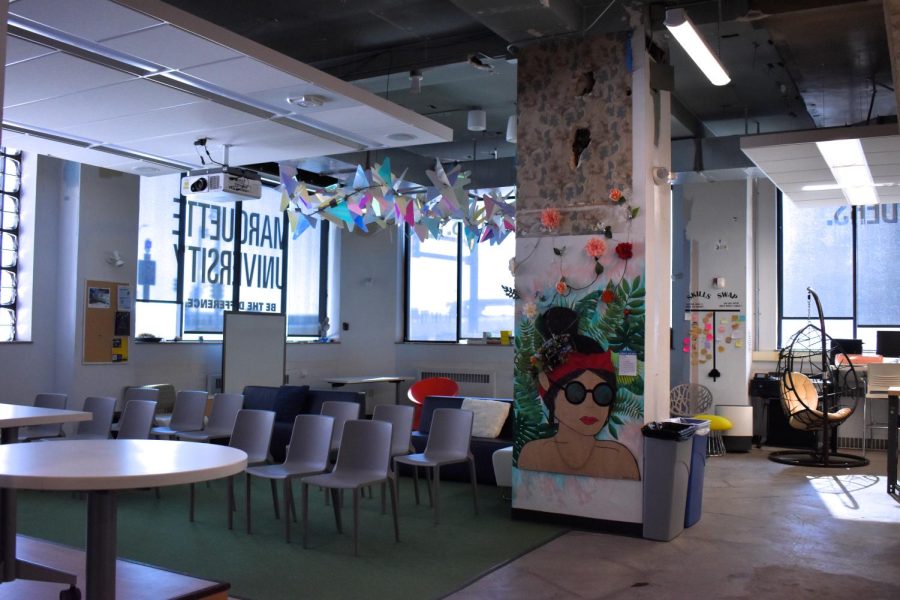
REVIVE is a new student recycling initiative designed to reinvent plastic recycling on Marquette University’s campus.
The organization intends to make people more aware of how to recycle plastics and the processes around them, Colleen Dunlap, a senior in the College of Engineering and founding member, said.
Dunlap said the initiative would provide students with new resources to express their creativity, serve in leadership positions and learn how to improve recycling.
“Beyond the Marquette scope, the people who are most affected by climate change are those who are the most economically vulnerable,” Dunlap said. ” I believe it’s our duty to think about how our actions impact our global neighbors, and make changes accordingly.”
The group is planning to make two machines to put on campus through Precious Plastic, a global community that collaborates to give donations to individuals creating innovative recycling solutions, according to Dunlap.
One is a shredder machine that turns plastic into flakes which can be converted into new things, and the second machine is an extrusion machine. An extrusion machine creates a continuous process where plastic flakes are inserted into the hopper and extruded into a line of plastic which can be used for other things.
The initiative also has plans to create 3D printer filament out of recycled plastic to sell back to organizations at Marquette with 3D printers, such as the 707 Hub and Wakerly Lab, saving their departments money and providing REVIVE with funds to expand with new machines, Dunlap said.
“People are less inclined to recycle when they don’t know what happens after,” Paula Van Camp, a senior in the College of Engineering and founding member, said. “This helps clarify what recycling is.”
The group is also planning to create a space for students to be creative and make sculptures out of recycled plastic, Van Camp said.
“I am really excited about the possibility of turning the plastics that are recycled into art and other usable products like 3D printing filament,” Kelsey Otero, associate director for the Social Innovation Initiative in the 707 Hub, said. “This creates a closed-loop system right on campus.”
Brent Ribble, campus sustainability coordinator, said that recycling plastic is very important as it allows us to conserve energy rather than intensify climate change.
“Sending waste off to idle and decompose in a landfill has unfortunate social, environmental and economic consequences, so we want to divert as much waste from the landfill as possible by reducing, reusing, recycling and composting,” Ribble said. “Recycling aligns with our Catholic, Jesuit mission to care for others and the earth through social justice and leadership.”
According to National Geographic, 91 percent of plastic isn’t recycled, and it takes 400 years to degrade, and eight million tons of trash ends up in the ocean each year.
Ribble said that recycling also has strategic benefits for Marquette.
“Recycling also has strategic benefits, like decreasing operational costs, engaging alumni, attracting and motivating elite students, faculty and staff, strengthening community relationships and unifying campus around a shared sense of purpose,” Ribble said.
If you are interested in joining REVIVE, email Colleen Dunlap or Paula Van Camp.



